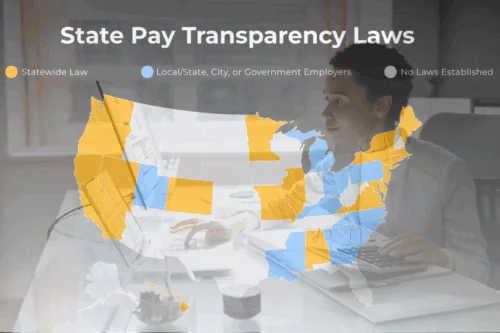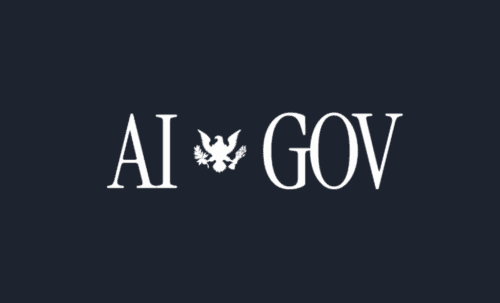Welcome to your essential guide on Hawaii employment law, tailored for those entering the job market or seeking further clarity on workplace rights and responsibilities. Understanding these laws is crucial whether you are just starting your career, transitioning to a new profession, or ensuring compliance in your current role.
Why Hawaii Employment Law Matters
Steering through the world of employment can be daunting, especially in a unique state like Hawaii. With distinct cultural and legal landscapes, knowing your rights and obligations is vital to a successful and fair work environment.
This guide provides a concise overview of mainland essential topics like minimum wage standards, discrimination protections, and safety regulations, all designed to empower you and enhance your knowledge. Explore the intricacies of Hawaii employment law and prepare yourself for a thriving career in the Aloha State.
Overview of Hawaii Employment Law
Hawaii employment law protects workers and employers by outlining the rights and duties of each party in the workplace. It encompasses many statutes and regulations designed to ensure fair and safe working conditions for everyone.
Foundation and Scope
The foundation of Hawaii’s employment laws is mostly derived from both federal standards and local state regulations. These laws cover various aspects:
- Discrimination in the workplace
- Minimum wage
- Overtime pay
- Health and Safety
- Unemployment benefits
Local and Federal Interaction
Hawaii state laws often extend or enhance federal laws such as the Fair Labor Standards Act (FLSA) and the Americans with Disabilities Act (ADA). For instance, Hawaii’s minimum wage is frequently adjusted and typically exceeds the federal minimum wage, reflecting the state’s higher cost of living.
Additionally, Hawaii provides specific protections under laws like the Hawaii Prepaid Health Care Act, which are unique to the state. Such regulations ensure employers provide adequate healthcare insurance way ahead of federal requirements.
Enforcement and Compliance
The Hawaii Department of Labor and Industrial Relations is primarily responsible for enforcing employment laws in Hawaii. This department oversees compliance and assists in resolving disputes between employees and employers. The U.S. Department of Labor also plays a crucial role in regulating federal employment standards within the state.
This overview of Hawaii employment law introduces its foundational elements—establishing a framework of rights and responsibilities crucial for maintaining a balanced and fair workplace environment. Specific provisions and their implications for employees and employers will be further discussed as we progress.
Provisions in Hawaii Employment Law
Hawaii’s unique geographical and cultural landscape influences many of its employment laws, which are tailored to protect the diverse needs of its workforce. Key provisions ensure compliance and fairness in employment practices across the state.
Equal Employment Opportunity
Discrimination in the workplace is strictly prohibited under Hawaii employment law. This embraces all protected classes, including race, age, gender, and more, promoting an inclusive work environment. Some key points include:
- Employers must provide reasonable accommodations for disabled employees.
- Harassment of any kind is prohibited, and employers are required to take action against such conduct.
Family Leave
The Hawaii Family Leave Law (HFLL) complements the federal Family and Medical Leave Act (FMLA), offering additional protections such as:
- Eligibility for family leave for employees who have worked for a certain period, which is often less restrictive than the federal requirements.
- Leave can be used for the birth of a child, adoption, or to care for a family member with a serious health condition.
These laws aim to support workers’ rights while balancing employers’ operational needs. Please refer to the Hawaii Department of Labor’s compliance resources for detailed information on navigating these regulations. Additionally, understanding these critical aspects of Hawaii employment law assists local businesses and organizations in fostering compliant and equitable workplace environments.
Employment Discrimination Protections Under Hawaii Law
Hawaii’s employment law provides robust protection against employment discrimination. These protections help ensure that all employees have fair treatment regardless of their background or personal characteristics.
Protected Classes
The state explicitly prohibits discrimination based on several protected classes:
- Race and ethnicity
- Gender, including gender identity and expression
- Sexual orientation
- Age (for workers over 40)
- Disability status
- Pregnancy
- Religion
Implementation in the Workplace
Employers are required to follow strict guidelines to prevent discrimination:
- Adoption of anti-discrimination policies
- Regular training sessions for employees
- Proper handling of discrimination complaints
Furthermore, the Hawaii Civil Rights Commission actively investigates complaints of discrimination in workplaces, ensuring enforcement and compliance.
Supporting Diversity and Inclusivity
In addition to legal compliance, cultivating an inclusive workplace benefits businesses by enhancing teamwork and innovation. Thus, many Hawaii companies incorporate diversity training and initiatives beyond the legal requirements.
These anti-discrimination measures under Hawaii employment law create a supportive environment for workers, helping businesses thrive while upholding the rights and dignity of every employee.
Minimum Wage and Overtime Regulations in Hawaii
Hawaii employment law ensures fair compensation for employees through clearly defined minimum wage and overtime regulations. These laws are designed to protect workers from underpayment and excessive working hours.
Current Minimum Wage Standards
As of the latest update, Hawaii’s minimum wage is above the federal minimum, reflecting the state’s higher cost of living. The rate is scheduled for periodic increases to accommodate economic changes.
Overtime Provisions
Workers in Hawaii are entitled to overtime pay under the following conditions:
- Overtime must be paid at 1.5 times the regular rate for any hours worked beyond 40 in a workweek.
- Certain exemptions apply, such as for individuals in managerial or professional roles.
Compliance and Enforcement
The Wage Standards Division of Hawaii provides oversight and enforcement to ensure compliance with these regulations. Employers found in violation face fines and must pay back wages owed to employees.
This section of Hawaii employment law regulates work hours to support employees financially and promote a balanced work-life dynamic. For further guidance, employees and employers can consult the state’s official resources or seek legal advice.
Health and Safety Regulations for Hawaii Workers
Hawaii employment law prioritizes worker health and safety, establishing stringent standards to minimize workplace hazards and ensure a safe working environment.
Key Health and Safety Laws
The state has implemented specific regulations to protect workers:
- Comprehensive safety training requirements
- Strict enforcement of workplace safety standards
- Mandatory reporting of workplace accidents
Worker’s Compensation
Hawaii requires employers to provide workers with compensation. This insurance helps cover medical expenses and lost wages for injured employees.
Occupational Safety and Health
The Hawaii Occupational Safety and Health Division (HIOSH) oversees the implementation of health and safety laws. They conduct inspections and can issue penalties for non-compliance.
The U.S. Occupational Safety and Health Administration (OSHA) also provides resources for understanding and complying with health and safety standards. These guidelines help ensure businesses provide a safe workplace, which is essential for the well-being of Hawaii’s workforce.
Rights and Responsibilities of Employers in Hawaii
In Hawaii’s employment law, employers have specific rights and responsibilities crucial for maintaining legal compliance and breeding a fair workplace.
Employer Responsibilities
The following are critical responsibilities that employers in Hawaii must uphold:
- Adherence to all wage and hour laws
- Implementation of non-discrimination policies
- Provision of a safe work environment in line with HIOSH standards
- Respect for the privacy and personal data of employees
Employer Rights
While focusing on responsibilities, it’s also vital to acknowledge the rights employers hold:
- The right to hire at will (except where prohibited by law)
- The right to terminate employment with cause
- The right to manage the workforce and make business decisions accordingly
These elements ensure that while protecting employee welfare, the law also supports employers in managing their operations effectively. This balance promotes a cooperative environment beneficial for both workers and employers.
Employee Privacy Rights in Hawaii
Hawaii’s employment law also protects employees’ privacy and personal and sensitive information.
Privacy Protections Under the Law
Several key areas are covered under Hawaii’s privacy protections:
- Restrictions on employer surveillance in areas where employees expect privacy, such as locker rooms and restrooms.
- Limits on the access and use of employee medical and financial records.
- Control over the disclosure of personal employee information without consent.
Technology and Privacy
With the rise of digital platforms and tools in work environments, Hawaii has adapted its laws to include:
- Guidelines on monitoring emails, phone calls, and internet usage at work.
- Policies that dictate the use of personal devices in the workplace.
Employees and employers can refer to the State of Hawaii Office of Privacy and Data Protection for detailed guidance on these privacy issues. This resource helps you understand how to comply with the state’s employment privacy laws while respecting individual rights.
Respecting these privacy rights helps maintain trust within the workplace, which is crucial for a positive and productive environment.
How To Handle Employment Disputes in Hawaii
Dealing with employment disputes correctly is crucial under Hawaii employment law. It ensures fairness and legal compliance in resolving workplace issues.
Types of Employment Disputes
Common disputes in the workplace include:
- Wage and hour claims
- Discrimination complaints
- Wrongful termination allegations
Resolution Processes
Employees and employers have several options for dispute resolution:
- Internal review processes, typically starting with HR departments
- Mediation, which involves a neutral third-party
- Arbitration is a more formal but still private method
- Litigation, which takes the dispute to court
Resources and Support
The Hawaii Department of Labor and Industrial Relations offers guidelines on these processes. It is often wise to consult with a lawyer specializing in Hawaii employment law for legal disputes.
Handling these disputes effectively resolves individual cases and maintains a harmonious workplace. It reinforces the commitment to rights protection and fair treatment for all employees.
FAQs on Hawaii Employment Law
What is the current minimum wage in Hawaii?
The minimum wage in Hawaii is set above the federal minimum wage, and it is scheduled to increase to accommodate changes in the cost of living.
Can my employer fire me without any reason?
Hawaii operates under at-will employment, meaning either employer or employee can terminate employment without cause, except in illegal discrimination or breach of contract.
What should I do if I face discrimination at work?
If you face discrimination, report the incident to your HR department. You can also file a complaint with the Hawaii Civil Rights Commission.
Are there specific laws for breaks and meal periods in Hawaii?
Yes, Hawaii law requires employers to provide employees with at least a 30-minute meal period for shifts exceeding five hours.
What are my privacy rights as an employee in Hawaii?
Employees in Hawaii have the right to protection against unauthorized use and disclosure of private information, including medical and financial records.
How is overtime calculated?
In Hawaii, employees are paid one and a half times the regular pay rate for hours worked beyond 40 in a workweek unless the employee is exempt under specific provisions.
Conclusion
Hawaii employment law provides a comprehensive framework designed to protect the rights of both employees and employers. With clear regulations on wages, discrimination, health and safety, and more, it strives to maintain fairness and safety in the workplace.
Join Diversity Employment
If you want to advance your career or improve your workplace in Hawaii, join Diversity Employment and upload your resume today! Our platform connects job seekers with employers committed to EEO employment. Together, we can help you find opportunities that respect and support your rights under Hawaii employment law.
Embrace your career journey in Hawaii with the confidence that your employment rights are protected. Join today and start forging a path to success in an inclusive and supportive work environment.




